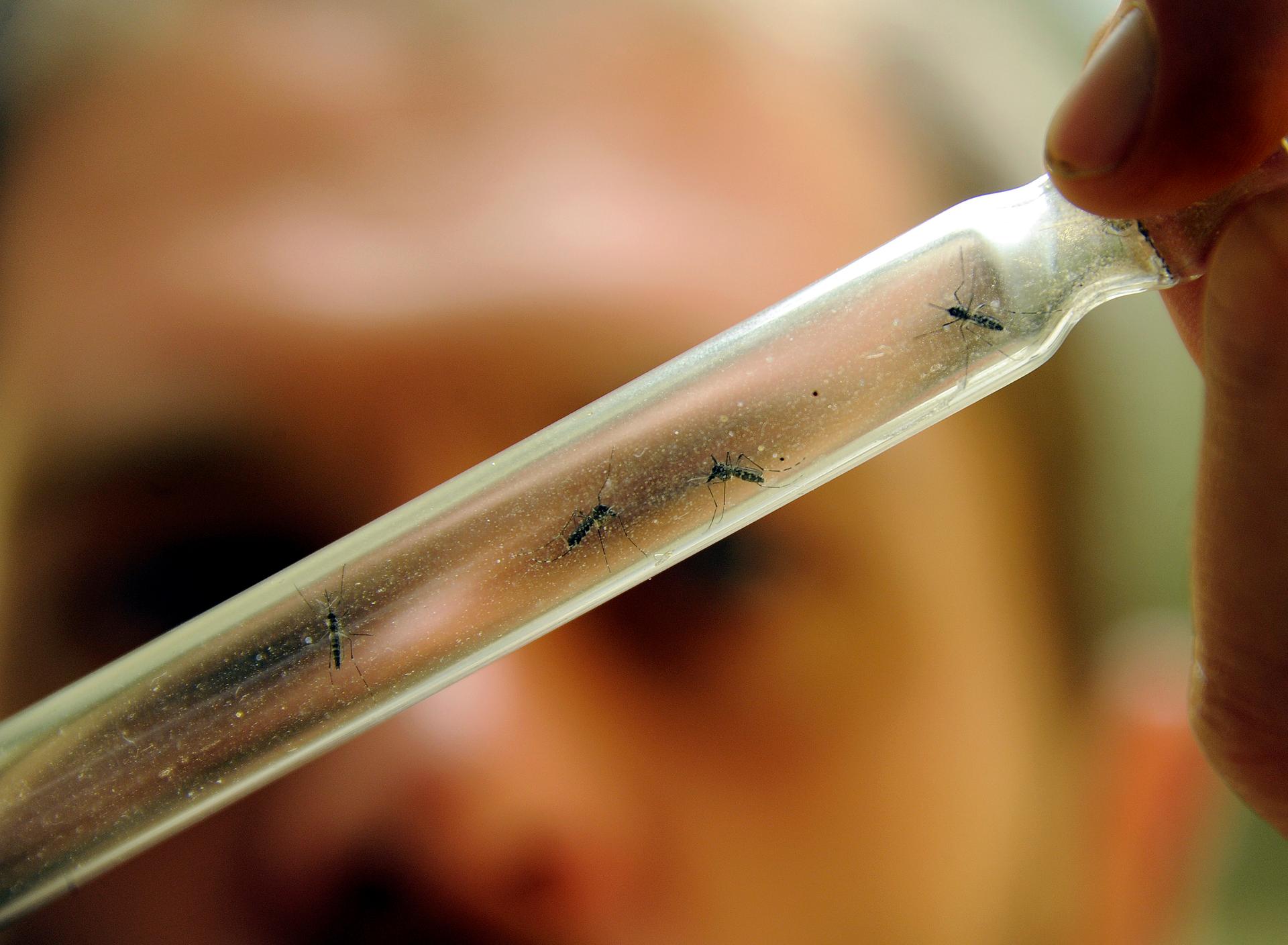Smell determines how mosquitoes find human prey, study says
US scientists have found a gene in mosquitoes that can be turned off, preventing them from finding human prey.
Researchers have found a gene in mosquitoes that, if switched off, prevents them from finding human prey.
US scientists found that by creating mutant mosquitoes lacking a sense of smell, they made it hard for the pesky creatures to determine human from animal.
They hope that the finding will help to find better ways of tackling diseases like dengue fever and malaria, which are transmitted by mosquitoes.
Diseases spread by malaria kill hundreds of thousands of people worldwide every year.
"The time has come now to do genetics in these important disease-vector insects," said study author Leslie Vosshall, an investigator from The Rockefeller University, in a statement.
More from GlobalPost: Plants combat climate change through cloud-causing aerosols
"I think our new work is a great example that you can do it."
Scientists have long theorized that smell was an important factor in how mosquitoes hunt.
Other factors include body heat and the release of carbon dioxide.
Yet, by erasing one gene, scientists were able to determine that sense of smell was the most important factor.
"None of those factors would be as important as smell," said Vosshall.
It is believed that the research could be used to develop better repellant rather than release a mutant mosquito army that is friendly to humans.
The research was published in the journal Nature.
The article you just read is free because dedicated readers and listeners like you chose to support our nonprofit newsroom. Our team works tirelessly to ensure you hear the latest in international, human-centered reporting every weekday. But our work would not be possible without you. We need your help.
Make a gift today to help us reach our $25,000 goal and keep The World going strong. Every gift will get us one step closer.
